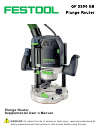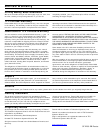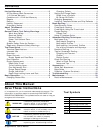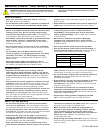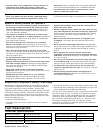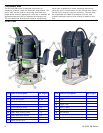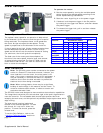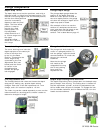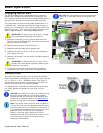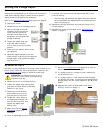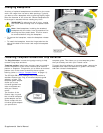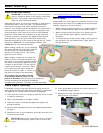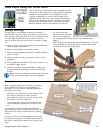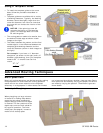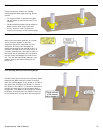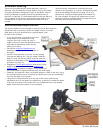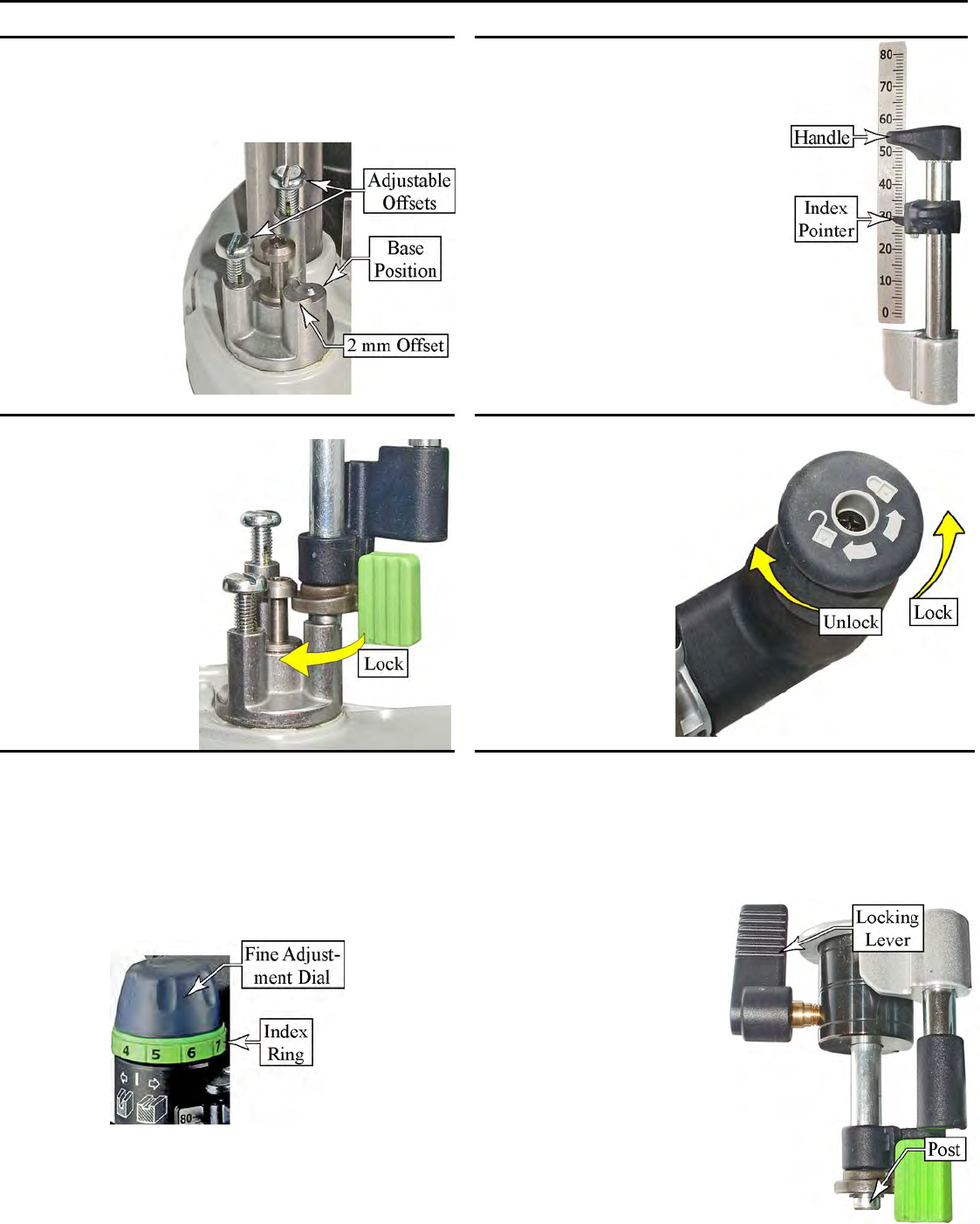
Plunge Components
Depth Stop Turret
8 OF 2200 EB Router
The depth stop turret has four positions, each with a
different height, or offset from the base position. The
desired final routing depth is set for the base position,
and the four offset positions
allow for incremental
depths to reach the final
depth. The 2mm offset
position is used to
provide for a final
cleanup pass. The
first adjustable
offset allows for a 6
to 18 mm range and
the upper
adjustable offset
allows for a 18 to 51
mm range.
Turret Latching Lever
The turret latching lever locks the
depth stop post to the center pin
of the turret when the
turret is in the Base
Position. This permits the
router height to be
controlled by the Fine
Adjustment Dial (see
below) and the router
to remain in the
plunged position
without the plunge
lock engaged.
Fine Adjustment Dial
The fine adjustment dial raises and lowers the depth
stop post for making very precise depth setting
changes. Each click of the dial represents a 0.1 mm
change, and a full rotation is equal to 1.0 mm.
The index ring can be rotated separately to zero out the
index numbers at a starting point to make it easier to
determine changes in height.
Plunge Depth Gauge
The plunge depth gauge shows the
position of the depth stop post.
When the index pointer is reset to
zero at a depth position, the gauge
will show the change in depth as the
depth stop post is raised.
One example of this is to use the
surface of a workpiece as the zero
point, and then use the gauge to set
the depth of the cut below the
surface. This is described on page 10.
Plunge Lock Knob
The plunge lock knob locks the
router in a plunged position. To
lock the plunge, rotate the knob
counterclockwise. To unlock the
plunge, turn the knob
clockwise.
Note that the plunge
lock needs to be
released while using
the Turret Latching
Lever and Fine
Adjustment Dial.
Depth Stop Locking Lever and Post
The depth stop locking lever clamps down on the depth stop
post to keep it from moving. The locking lever is located on
the fine adjustment cylinder, so that fine adjustments can
still be made when the post is clamped. To engage the lock,
turn the handle clockwise, and to release the lock, turn the
handle counterclockwise.



